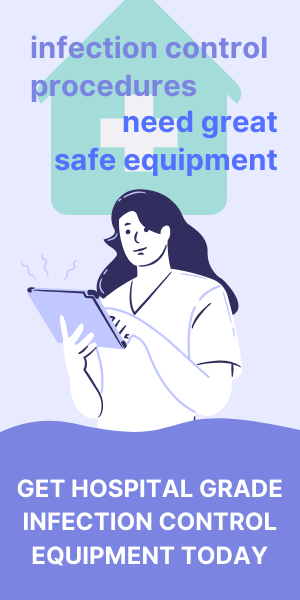Some enzyme deficiencies are genetic, which means they are the result of an abnormal gene. Lack of enzymes can be congenital (present at birth) or develop over time.
Doctors say that diseases of the stomach and small intestine reduce the amount of enzymes they produce. Berries, so people with irritable bowel syndrome (IBS), inflammatory bowel disease, or low stomach acid may find digestive supplements helpful. Most of the research is limited, and some of them have problems, so it is difficult to understand the benefits of digestive enzymes under these conditions.
However, it can help you make better choices when buying any supplement. Because certain medications can interfere with digestive enzymes, it’s critical to inform your doctor about all medications and supplements you’re taking. When to see your doctor If you have frequent or persistent digestive problems or signs of EPI, see your doctor as soon as possible.
Without good gut bacteria, you may experience symptoms similar to enzyme deficiency symptoms, such as bloating or gas, due to an overgrowth of abnormal bacteria or an imbalance in the gut. Likewise, some people lack an enzyme that digests the sugar found in beans.
Or, if you have difficulty digesting beans, alpha galactosidase supplements may come in handy. Similarly, taking alpha-galactosidase supplements can improve digestion in people who cannot tolerate legumes. Your body does not produce probiotics, so taking supplements may be beneficial for your digestion.
Taking probiotics can improve gastrointestinal symptoms if digestive problems are already occurring, but many people choose to take probiotics for preventive and maintenance purposes. Finally, taking probiotics can help with antibiotic-associated diarrhea, irritable bowel syndrome (IBS), and other digestive problems. Probiotics support overall gut health, including continued digestion and bowel function, as well as healthy gut barrier function to absorb nutrients from food. Adding probiotic supplements to your healthy lifestyle can support optimal digestion and bowel function, and improve overall health.

IBS symptoms can be reduced by taking supplements with digestive enzymes, which help the body digest food. For example, since one in three people with IBS also have trouble digesting certain foods, it is possible that taking supplements of digestive enzymes, which are known to help the body digest these foods, may reduce the symptoms of IBS. Since digestive enzymes help the body break down fats, carbohydrates, and proteins, the theory is that adding these enzymes to the body promotes healthy digestion and relieves irritable bowel syndrome (IBS) symptoms.
Alternative medicines and enzyme supplements come in different forms, with different ingredients and dosages. Other enzyme therapies with some evidence of efficacy include supplementation of lactase for lactose intolerance and supplementation of alpha-galactosidase for individuals with IBS sensitivity to GOS.
However, over-the-counter digestive enzymes are supplements, not drugs, which means they are not regulated by the FDA, and you cannot be 100% sure that they contain everything they promised. You can buy supplements for bloating, or you can get a more diverse set of medications that contain many different enzymes in one tablet. Some contain lactase and α-galactosidase (an enzyme that is not produced even in healthy people without enzyme deficiency). Several prescription enzymes contain pancrelipase, which is composed of amylase, lipase and protease.
These drugs are usually coated to prevent stomach acids from digesting the drug before it enters the intestines. This is a situation where pancreatic enzymes will be used in clinical practice, and the prescribed drugs contain a combination of lipase, amylase and protease (enzymes for the breakdown of fats, carbohydrates, and proteins, respectively). It is important to note that these formulations are enteric coated tablets to protect them when passing through the stomach, as the highly concentrated acid in the stomach can inactivate uncoated enzymes.
For example, lactase supplements contain enzymes that digest milk sugar and should be taken with dairy products. For example, if you are lactose intolerant, your body cannot digest dairy products, and supplements containing lactase may help. Be sure to check with your doctor before taking any supplements, as they will be able to tell with laboratory tests if you really have low levels of a certain enzyme.
You’re good as long as your body can create these enzymes in the quantities required for the meals you consume on a daily basis. Slayton says there are many ways to get more enzymes naturally. Improving digestion increases the absorption of nutrients and reduces the burden on the body to produce enzymes. The body’s ability to produce enzymes decreases as part of the aging process.
When the pancreas does not produce enough enzymes, the body cannot easily break down food and absorb nutrients. However, they do not have the digestive action of additional plant enzymes and, at best, their enzymes will only supply the nutrients they contain. No, because additional enzymes support the normal function of body organs and perform very specific actions (amylase breaks down carbohydrates, lipase breaks down fats, protease breaks down proteins). Additional enzymes do not directly control organ function or production.
Your body will continue to manufacture the enzymes required for digestion and metabolism if you stop taking supplements. Taking enzyme supplements while your digestive system is devoid of metabolites is a waste of important resources, just like when your friend shows up on the day you move after your flat is empty. If you have a specific condition or sensitivity that causes deficiency, you will need specific supplements to provide your body with the digestive support it needs.
Even if taking digestive enzyme supplements aids digestion without causing negative effects, it’s still a good idea to inform your doctor, especially if you want them to be consistent. That way, “you can learn about any problems you may face in the future” says Dr. Hajj, and your doctors are already in touch if you need a consultation.













